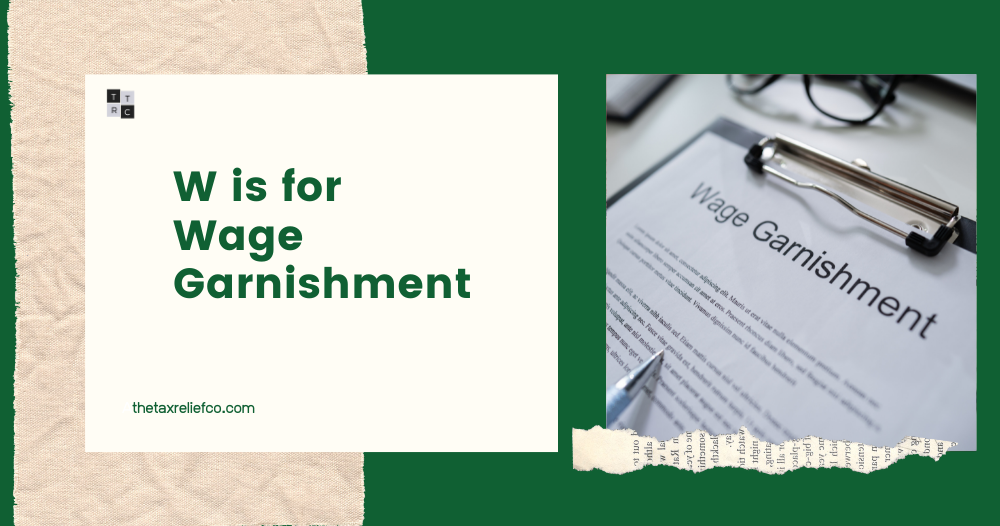W is for IRS Wage Garnishment
W is for IRS Wage Garnishment
An IRS wage garnishment is a legal procedure in which a person’s earnings are required by court order to be withheld by an employer to pay a debt such as child support.
If you owe back taxes, the IRS can garnish your wages. However, they must follow strict guidelines. The agency has the authority to levy or seize your property. Garnishment of your employment wages each week is a particular type of levy.
The IRS would direct your employer to remit a portion of your salary for a certain amount of time until you fully pay your tax obligation.
The IRS won’t start garnishing your wages without giving you notice and an opportunity to make payment arrangements. But, unlike most other creditors, it doesn’t have to sue you and get a judgment to start the garnishment process.
The agency will send a series of notices before taking your wages.
The process.
- A notice and demand for payment (notice numbers CP14, CP501, CP503)
- A notice of intent to levy (CP504)
- A notice of your right to a Collection Due Process (CDP) hearing (LT11/Letter 1058) via certified mail.
- After receiving an LT11/Letter 1058, you can expect the IRS to begin garnishing your wages generally two weeks after your deadline to request a hearing has elapsed.
You can stop an IRS garnishment. Here’s how:
- Pay off your tax debt in full. The first way to stop wage garnishment is to fully pay your tax debt.
- Set up a properly structured payment plan. The IRS is typically willing to work with taxpayers who owe a tax debt.
- Negotiate an Offer in Compromise.
- Declare hardship.
- Declare bankruptcy.
- Work with an Enrolled Agent and Certified Tax Resolution Specialist (CTRS).
Note: If the IRS does garnish your paycheck, it won’t go on your credit report. The IRS isn’t allowed to report delinquent taxpayers to the credit bureaus. Also, you won’t lose your job if this happens once because the Consumer Credit Protection Act prohibits employers from firing workers over a first-time wage garnishment.
Working with Jeffrey Schneider, EA, CTRS, and ACT-E is your best option for getting the most reasonable settlement from the IRS. He has been helping taxpayers for over 40 years, fighting the IRS. He will be your voice in front of the agency. Contact him at https://thetaxreliefco.com/contact/ and schedule an appointment to find out how he can help you.



